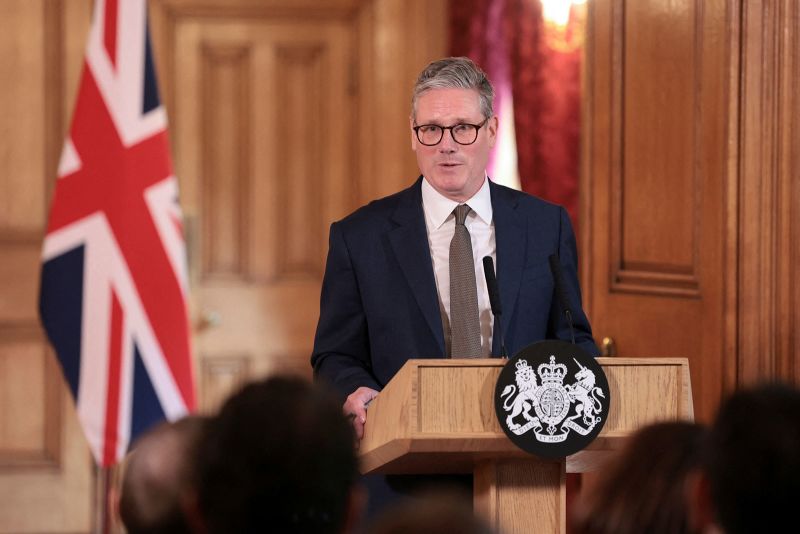
Rwanda hints it won’t reimburse $300 million UK paid for deportation deal after new British PM says he’ll ditch agreement
The Rwandan government has hinted that it won’t reimburse more than $300 million it has received from the United Kingdom since 2022 for a deal to deport asylum seekers deemed to have arrived illegally in the UK to the East African nation.
A Rwandan government spokesperson said on Tuesday that its migrant deal with the UK did not include any “clause regarding reimbursement” after the newly-elected British Prime Minister Keir Starmer said that he would scrap the controversial agreement.
“Within the agreement there was no clause regarding reimbursement… it never stated that the money would be refunded,” spokesperson Alain Mukuralinda said in a video posted by state-owned Rwanda Broadcasting Agency.
“We had an agreement. Both parties signed, it became an international agreement, we start implementing it, then after that you want out … best of luck,” Mukuralinda said.
The UK has given Rwanda £240 million (around $307 million) so far as part of the deal, according to a fact sheet published by the British government in April this year.
Speaking at his first press conference as prime minister on Saturday, Starmer said he was “not prepared to continue” with the controversial deal to send asylum seekers to Rwanda, calling the scheme a “gimmick” and denying that the bill acted as a deterrent.
The controversial plan was first announced in April 2022 by the Conservative government at the time under Prime Minister Boris Johnson but faced a series of political and legal challenges as lawmakers and activists sought to scupper the legislation on human rights grounds.
After the bill was passed in April this year, former UK Prime Minister Rishi Sunak claimed the plan was introduced “to deter vulnerable migrants from making perilous crossings and break the business model of the criminal gangs who exploit them.”
The bill was condemned at the time by UN High Commissioner for Refugees Filippo Grandi who said the arrangement sought to “shift responsibility for refugee protection, undermining international cooperation and setting a worrying global precedent.”
Amnesty International UK also called the plan “a stain on this country’s moral reputation” that “takes a hatchet to international legal protections for some of the most vulnerable people in the world.”
Luke McGee and Rob Picheta in London contributed to this report
